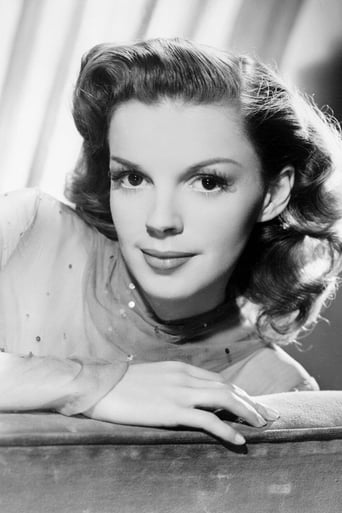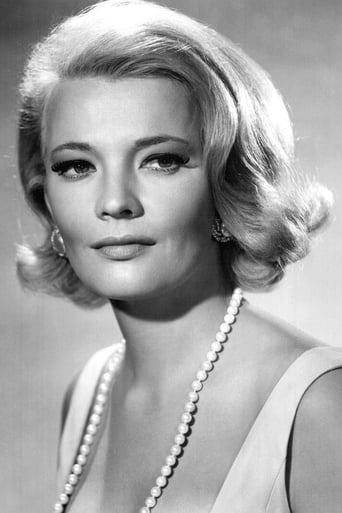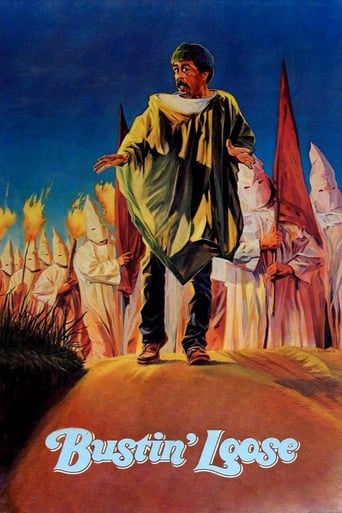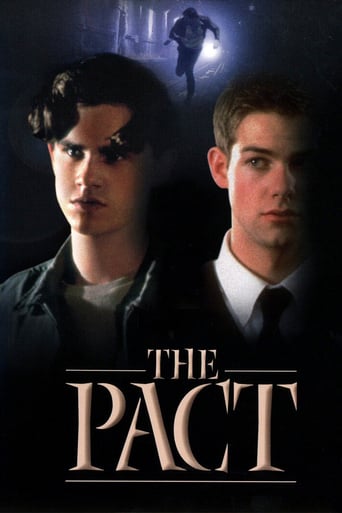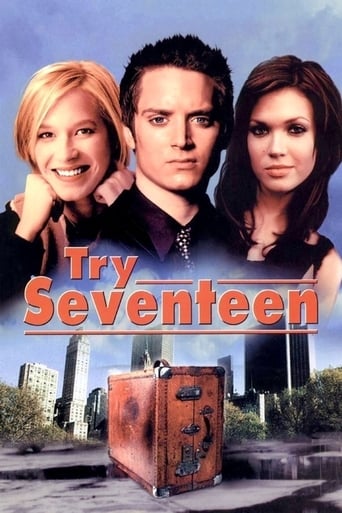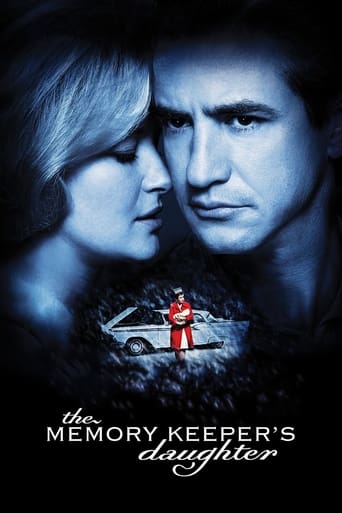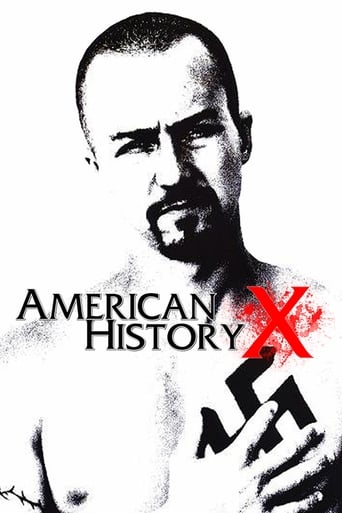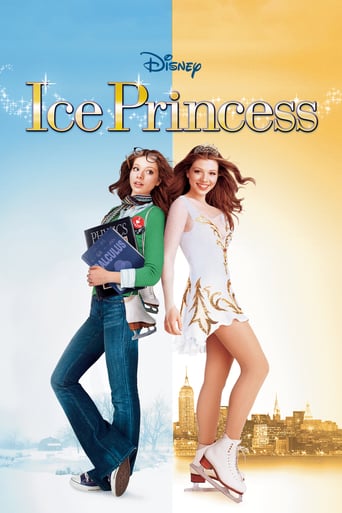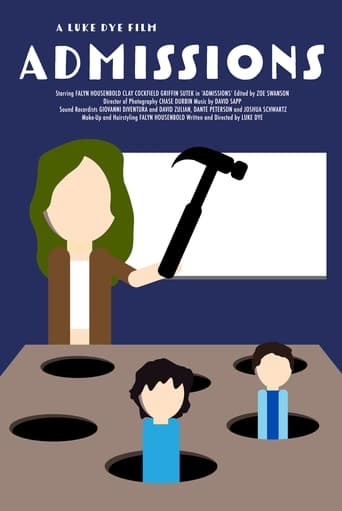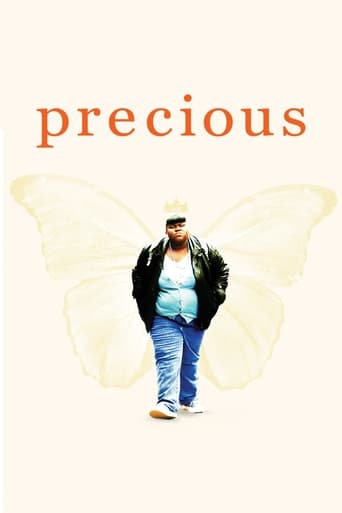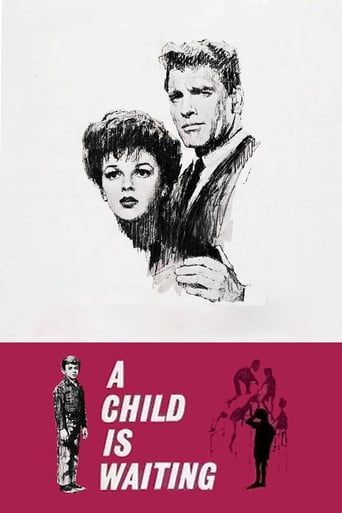
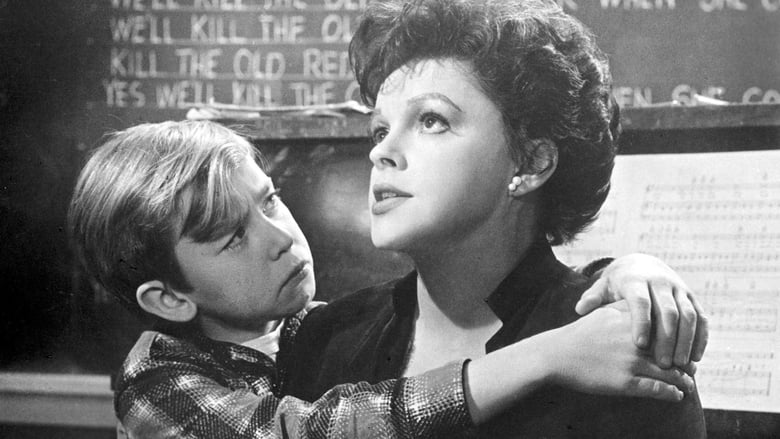
A Child Is Waiting (1963)
Dr. Matthew Clark is the head of a state institution for intellectually disabled children. Jean Hansen, a former music teacher anxious to give her life some meaning, joins the staff of the hospital. Jean, who tries to shelter the children with her love, suspiciously regards Dr. Clark's stern training methods. She becomes emotionally involved with 12-year-old Reuben Widdicombe, who has been abandoned by his divorced parents.
Watch Trailer
Cast


Similar titles
Reviews
This movie personally hits home with me as I was personally attached to people with mental disorders. I had a cousin who was born with a brain injury. I watched my siblings and cousins grow with the usual maturation process except for my damaged cousin as she did develop as a woman yet her brain remained unvaried. I also watched her parents, my second cousins deal with her condition. They loved her and treated her as if she was normal. Moreover her parents were huge members of The organization AHRC to raise money for the mentally disabled. I always wondered how parents dealt with their mentally disabled children? I was first exposed to this shocking film about life in a institution for mentally challenged Children shown on the Million Dollar Movie in New York in the late 1960's, I was about 10 years old. Our movie starts with an upscale couple, the Widdicombes, Ted and Sophie played by Steven Hill and Gena Rowlands. Their new born child Rueben who seems dormant lying in his crib uninterested is questioned by his mother but the Rueben's father claims that another boy didn't speak for years and grew up a success. A few years passed and The Widdecombes have a second child, a girl who is normal yet you see Mr. Widdecombe taking Rueben for IQ tests to various doctors who claim he is under the normal curve in intelligence. The parents realize that their son is a failure as the Father drives at top speed to a mental institution and coerces Rueben out of his car. Our scene shifts to new Players in our tearful story a Dr. Matthew Clark (Burt Lancaster) who runs the facility has strict methods in his teaching approach to the disabled and refuses to coddled them along making them useless in their futures. Lancaster yet strict is restrained throughout and never useless harsh language or acts of violence like you would see in an Oliver Twist institution. Enter our other star the chunky yet vulnerable Jean Hansen played by Judy Garland who is hired as the music teacher in the film. Rueben despondent and discarded by his parents who never come on visiting day adopts Miss Hansen as a surrogate Mom and becomes quite attached to her amongst the consternation on the other students. The pressures of the job get to Miss Hansen who had no prior experience in working with mentally handicapped. As I watched this film I saw the hopelessness and felt sorry for Rueben. I empathized with his frustration throughout the film. I wondered why his parents were so ashamed due to a birth defect which they had no control over. As for the acting I found it refreshing seeing Judy Garland in a serious role and pulling it off with tears and compassion. Burt looked more like a GQ magazine cover model than a headmaster of an institution. His acting was professional yet I felt he was miscast due to his appearance. A thought provoking film that makes you cringe at the sight of the dark side of human existence where these loving children were dealt a bad card by Mother Nature. Today I have a Niece and Nephew who are mentally challenged and discarded by their Father. I take the Father's place and show them love, respect and mostly time together making life more palatable for them. You love your children unconditionally. Furthermore kudos to Stanley Kramer for producing another controversial inspiring film.
"What does normal mean, anyway? He might be a bit on the slow side, but my boy Forrest is going to get the same opportunities as everyone else. He's not going to some special school to learn to how to re-tread tires." Now, who would have thought a movie was made that could enlighten us about the kind of destiny little Forrest escaped from thanks to his mother's iron-clad determination."A Child is Waiting" is set in a mental institution for troubled and emotionally disturbed children, and directed by John Cassavetes. It was his third movie following "Shadows" and "Too Late Blues", but didn't have the same impact and was inevitably overshadowed by his more revolutionary "Faces", "Husbands", you know, typical Cassavetes. The film might be a little too 'classic' and structured but the independent movies' pioneer has never been a structured storyteller anyway; his sense of structure was of emotions and instincts.And I guess I could see why, of all the directors, he was selected for such 'heavy' material. The documentary-like aspect of "A Child is Waiting" calls for an eye that already proved its acuteness to spot the vulnerability of the human soul without the use of cinematic tricks. The film renders with more or less efficiency the harrowing pain and discomfort the spectacle of mental handicap can inspire, with shades of optimism carried by these kids' smiles and attempts to learn. Made in 1963, it is as modern as if it dealt with today's kids. The opening credits show children's drawings and we can see they don't differ much from what kids born in the 2000's would draw.But all these efforts to hit a universally and timelessly sensitive chord can't distract from the fact that the film was a box-office failure.This is a movie whose making was unfortunately derailed by a growing antagonism between producer Stanley Kramer and Cassavetes. And by starring Burt Lancaster as the director of the institution, Dr. Clark, Judy Garland as Jean Hansen, the newly hired teacher and the screenplay being written by Abby Mann, the film is torn between the didacticism of "Judgment by Nuremberg" and the emotionality of "Faces". Cassavetes disowned it, Kramer wished they could have transcended that barrier of disagreement for the sake of that profound and haunting issue. As much as a Cassavetes' fan I consider myself, I appreciate the point made by Kramer. This is a film too important to be disregarded because of cinematic considerations.Cassavetes has a point though. There are some elements that are overly dramatized and seem to be just made in order to extract the "right" emotions from us, Clark's heroic stand-up against the patronizing compassion of doctors and politicians who consider these kids as abnormal, or Hansen' misty-eyed compassion toward little Reuben. The acting is obviously well-intentioned and I can see sincerity in the way Lancaster and Garland approach their roles. Yet the film is never as powerful as when it just lets the camera roll and shows the kids acting normally within their abnormality. I've seen child acting in old movies and this film contains one of the greatest ever. In a film like "The Night of the Hunter", children play a pivotal role but they fail to convince you, here, maybe the mental condition works because the kids are playful or disillusioned, thus naturally indifferent to the camera eye.To some extent, the film reminded me of the movie "Freaks" in the sense that the protagonists were playing their roles and never really tried to act, to the point that they were deemed as freaks from the perspective of society but never the eye of Todd Browning or the viewers. Cassavetes achieves the same thing, when the kids try to 'play the game', it's less from the awareness that there's a camera, but because most of these kids really want to please the adults and overcome their handicap. But they're still confronted to the severe judgment of adults, parents and society, that's their tragedy, they're dependent on people's perceptions, even positive ones. We all do but at least, we have the privilege of reciprocity. Cassavetes tried to free the kids from that burden but his personal vision was contradicted by Kramer's: that discipline was the only way to shield these kids. And the soul of this conflict is Reuben who refuses to get off the car in the opening sequence.I don't know if the kid was really troubled or not, but he is in a worse condition because unlike some kids, he "looks" normal, so as the doctor said, he might be more likely to face rejection. Reuben also grows a fondness on Mrs. Hansen which he sees like a second mother and she's caught in a situation where she's tempted to become a loving model but then decides to call his mother played by Gena Rowlands. Rowlands, Cassavetes' wife and muse elevates the film through her five-minute monologue about guilt poisoning a mother's heart when she decides to leave her child. The problem isn't about love, whatever it is, sooner or later, love is compromised and the kid is lost anyway. In a way, she proves Clark's point about the necessity of an institution, the lesser of two evils.Which takes me back to that shift between Kramer and Cassavetes, it is quite interesting, it's like the film reflected its own polarizing subject, I don't think I would agree that these kids could grow normal without the help of adults and a mental structure, but again, Cassavetes works through emotions, and with his sharp filmmaking, manages to elicit powerful performances from these children. The film is never as good as when it deals with emotional rather than trying to be too preachy for its own good. The point it tries to make is honorable, but the camera of Cassavetes handles the hardest part.
Emotionally disturbed Judy Garland (as Jean Hansen) gets a job looking after children at the Crawthorne State Mental Hospital and Training School. A former music teacher, Ms. Garland becomes attached to 12-year-old Bruce Ritchey (as Reuben Widdicombe) and clashes with psychiatrist boss Burt Lancaster (as Matthew Clark). This eventually leads to a crisis, but both Garland and young Ritchey grow from the experience. Working with the bond formed by "Reuben" and Garland, Mr. Lancaster also learns something. Garland directs the children in a Thanksgiving play, and another chapter in Ritchey's life unfolds...This was the first of two final feature films for Garland, though she continued to be taped and filmed in many fine appearances. Both "A Child Is Waiting" and "I Could Go on Singing" take into consideration Garland's emotional state and musical abilities; here, her rough edges become part of the characterization. Lancaster and Garland do not disappoint, but the real treat is watching the nearly hidden away story and performances of parents Steven Hill (as Ted Widdicombe) and Gena Rowlands (Sophie), a realistic couple who love their children but make mistakes. Of course, this description fits any set of parents...There are some concerns here with editing - one of the problems between filmmakers Stanley Kramer and John Cassavetes that has been documented publicly - mostly, this leads to confusion about exactly when "Reuben" arrived at which institution. And, some unnecessary pity and cuteness can occasionally be felt. Otherwise, this is a fine social conscious-raising drama, for the time. Presently, most of the institutionalized individuals depicted herein show little reason not to be back in their regular communities, with their parents and peers. Everyone loses when we exclude people who are different, for that reason alone.******* A Child Is Waiting (1/14/63) John Cassavetes ~ Judy Garland, Burt Lancaster, Bruce Ritchey, Steven Hill
This film is from the twilight years of Judy Garland's career in movies. After A STAR IS BORN and JUDGMENT AT NUREMBURG there were only three major productions she did: this film, I CAN GO ON SINGING, and THE ARISTOCATS. While I CAN GO ON SINGING is a passable film, and THE ARISTOCATS a fair cartoon, A CHILD IS WAITING is above the average for a film of a movie star in decline, and of interest in dealing with the issue of mental retardation.Stanley Kramer was producing this film, but was involved on IT'S A MAD, MAD, MAD, MAD World, and got John Cassavetes to direct the movie. This explains three of the cast members. Kramer produced JUDGMENT AT NUREMBURG which had both Judy and her co-star here Burt Lancaster. Cassavetes was probably responsible for the hiring of his wife Gina Rowlands for the role of the retarded boy's mother.Garland has just gotten a job at a clinic run by Lancaster for children with mental and emotional problems. Most of the children are suffering from retardation (in looking at some of the faces one can see many have "Down Syndrome". It turns out that Garland has been seeking a job which has meaning - she is in her thirties and basically rootless. She soon finds that her attention is towards a boy named Reuben (Bruce Richey), who cannot relate to the other children as Lancaster and his staff had hoped. Cassavetes tries to make the film documentary in approach, with black and white film stock, and narrative regarding the history of Reuben's tragedy. His parents are Rowlands and Steven Hill. Hill comes from a family of achievers, and has high hopes for the boy. But as the child does not respond to such things as just walking, he is tested several times. To the despair of Rowlands and the denial of Hill Reuben is found to be retarded. Finally Hill agrees to putting Reuben into Lancaster's clinic. But the tragedy continues - After an initial period Rowland (who eventually remarries to Lawrence Tierney) stops visiting. Hill never comes at all - burying himself in his building firm.Much of the film follows the internal conflict between Garland and Lancaster regarding the proper approach to caring for Reuben. Garland is quite big-hearted, and reaches out to the little boy (which Reuben does appreciate). But Lancaster's scheme of care is to get more interaction between the children, and to get them to have a sense of self-reliance and worth. He sees Garland's well-intentioned love as being detrimental because discipline is needed to get Reuben to understand rules of conduct, and Lancaster has seen too many children ruined by the best of intentions: they are treated as children even as adults, and never emotionally grow up.Nature or nurture? It is an age old problem, made more vivid here by the individuals whose lives are affected by the method of treatment offered. Garland brings the crisis to a boil when she contacts (despite Lancaster's prohibition) Rowlands and Tierney to visit the boy. She lies to them, and when Rowlands realizes why Rowlands laces into Garland demanding to know how Garland can think Rowlands never thinks of Reuben or totally has stopped loving the boy. It is just that the strain it put on her and her husband, and Reuben's little sister, is too much to bear. But later Rowlands faces an even harsher verdict. Reuben runs away, and when Rowlands calls Hill down from his job he is hostile about the incident, and openly wishes the boy had died. Later Hill calms down a bit, and decides to take the child's fate into his own hands. He has a meeting with a member of the staff of Lancaster's clinic (Paul Stewart), and says that he is willing to leave Reuben there if he is just isolated. Stewart points out this is not possible, leaving Hill with a choice: let Reuben remain in the clinic or put him into an mental institution for the rest of his life. Hill has not fully decided when he goes to see Lancaster's clinic during Thanksgiving, and sees the children in a production that Garland was in charge of.It is a stark film - and not one for people who like life to be pretty and "normal". A key scene, where Lancaster teaches a contrite Garland a lesson, is when he shows her a separate room she has not seen before. All the inmates are adults who had been treated as Hill might want Reuben to be treated (by a "caring" staff in a mental institution). It is a lesson on the unconscious waste of human vitality and dignity that misplaced care can sometimes produce.The performances are good, particularly Garland (who was in one of her emotional troughs at that period). Lancaster's tough love figure initially turns one off, until one sees the results of Garland's interference. But best is Rowlands, who in her scene with Garland demonstrates how the latter's well-meaning attempt to help just reopened jagged emotional injuries. Hill too is fine as a man whose disappointment ruined his vision of what should be done. And Stewart, whose part is somewhat peripheral, is able to validate Lancaster's methods do work, and that there is a better future for these unfortunate children if they are allowed to be guided to help themselves find it.



